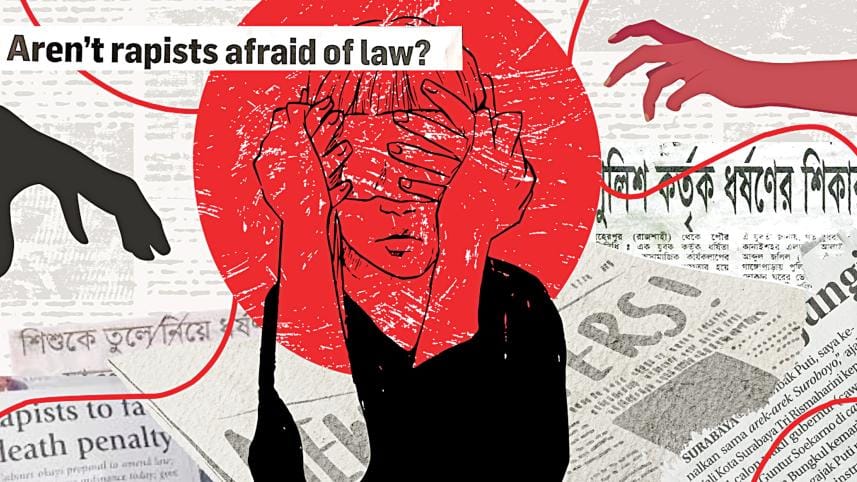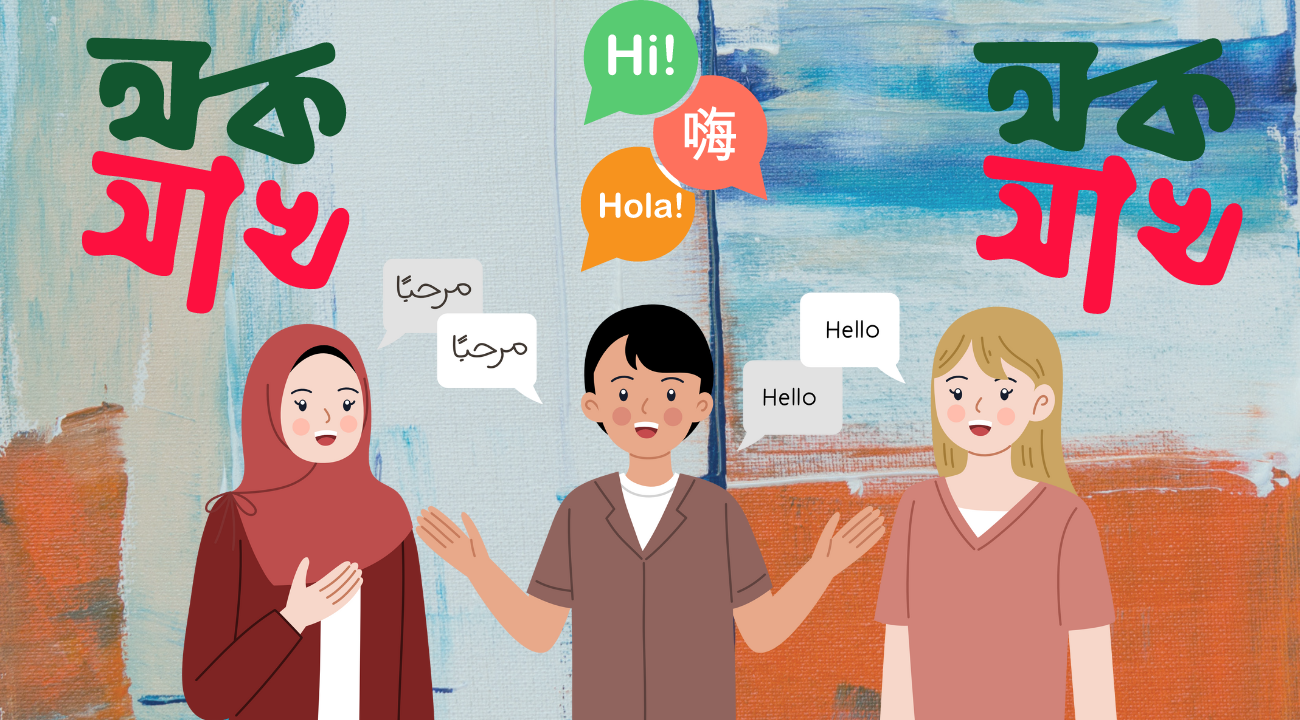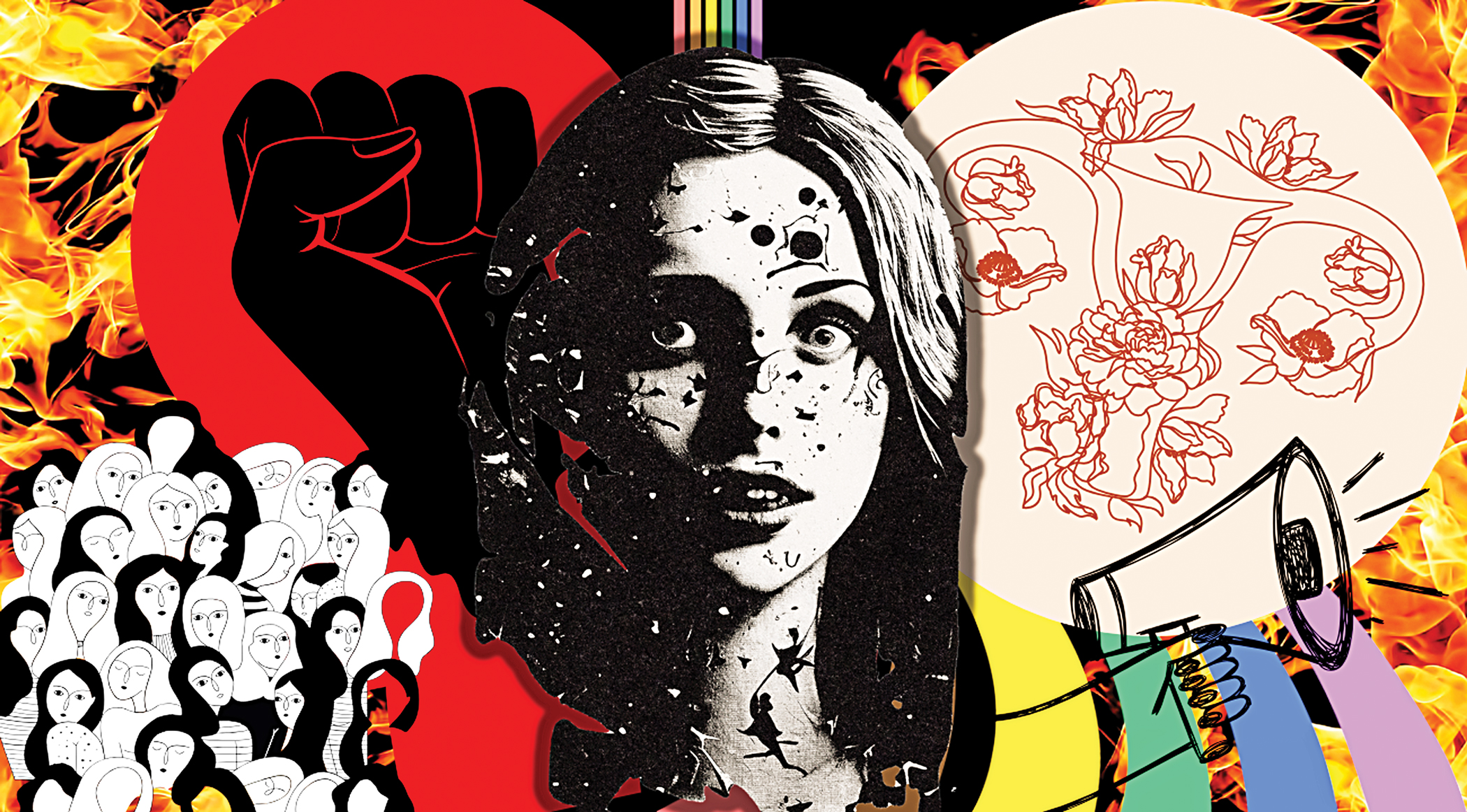Retribution
Rabeya, laughing alongside him, would add, "People expect justice for rape these days? I'm speechless at their naïveté!"

Trigger warning: Rape
Every day, five newspapers arrive at Mohsin's house. He is a retired college professor, and although he spent more than half his life teaching, his habit of reading newspapers hasn't grown old. For the past 10 years, he and his wife have been reading the papers together. One particular event drew them in, and since then, they've become addicted to the daily news. These five newspapers are among the most prominent in the country, and one of them is in English.
The newspapers arrive quite early in the morning. But the two of them—after finishing breakfast and bathing—sit down with it together. This ritual has become something sacred for them, almost like a prayer. They pore over each page, taking their time, carefully flipping back and forth. Since they have no children, there's no rush to do anything for anyone else. When every page has been thoroughly read, Mohsin's wife, Rabeya, brings the scissors. Mohsin hands her each news item he's marked in red ink, one by one. With great care, she cuts them out—if there's a picture, she includes it; if not, just the article itself. She's so meticulous, making sure nothing is misplaced. She takes her time, as if cutting quickly would drain the pleasure too soon. Far from feeling annoyed, Mohsin watches her with even more interest. In the shared quiet of their days, he has never looked at any other task of hers with such keen attention.
Every story of rape and every news report about such horrors, Mohsin would hand over to Rabeya, who would cut them out one by one. With each snip, her face would light up, a glint of satisfaction playing across her eyes. And as soon as Mohsin held each cutting, that same gleam would spark in his own eyes. The more reports of assault, the greater their delight. If a report described parents wandering from place to place for years, seeking justice for their violated daughter, Mohsin would burst into laughter, saying, "Justice for rape? Is that even a crime worthy of justice?"
Rabeya, laughing alongside him, would add, "People expect justice for rape these days? I'm speechless at their naïveté!"
They sort through the newspaper clippings. On one side, they place reports of recent assaults; on another, follow-ups on older cases; and on yet another, articles or surveys by
NGOs or organisations on the topic. Their main interest, however, lies in the fresh incidents.
"How many today?" Mohsin asks, once they've sorted everything into categories.
"12," replies Rabeya. They only keep track of the new cases.
"That's two fewer than yesterday," Mohsin remarks, as if genuinely disappointed. He hadn't felt this let down even when Bangladesh narrowly lost a cricket match by two runs in Asia Cup.
"Not every piece of news makes it through, you know. So many stories get buried in the local pages. How can they possibly publish every incident of rape?" Rabeya speaks as if consoling her husband.
"True. And many don't even report such things for various reasons. They keep quiet. The actual number is surely much higher." Mohsin now seems a bit reassured.
Setting aside the other papers, they begin sifting through the clippings of news about rapes. For a long time, their gaze lingers as if fixed on some uplifting piece of news. They looked at the paper with that same intensity when their daughter's scholarship award in the talent pool was published. And later, when she placed herself second in the university entrance exams, the coaching centre placed an ad with her photo—a display that her parents seemed to have framed in their minds 24/7. Professor Mohsin had one of his students laminate that clipping and handed it to his wife. He said, "Keep it with the scholarship news."
Today, once again, he gathers the newspaper clippings, hands them over to Rabeya, and says, "Place these with the others on the rape files." Even without his instruction, Rabeya would have done it anyway—that's what the clippings are for—but he had a habit of saying it out loud.
Rabeya would take the clippings to the bedroom and would open the largest drawer of the almirah, one drawer nearly full and another on its way. Every day, when placing new clippings, she would go through the old ones. It had become a ritual for her, a habit. Mohsin would come up behind her, as he would do every day, watching. They both enjoyed this strange ritual. The drawer in their almirah was filling up with news of rapes.
Leaving the drawer open, Rabeya would stand there, pulling out more clippings from under the bed, old ones laminated from years ago. She would run her hand over the image of a young girl. A few more clippings would fall from the stack—about ten years old. In one of them, there was a photograph of Prof. Mohsin and Rabeya Khatun, standing alone, demanding justice, placards on their chests. Mohsin would pick up this clipping, chuckling, and show it to Rabeya. "Look at us," he'd say, adding, "Two fools on a mission. Is rape really a crime deserving justice? A pair of idiots crying out for days and days. What nonsense!"
Rabeya would get angry but would laugh, too. Laughing, she'd reply in a raised voice, "Yes, of course, rape isn't a crime. Just a trivial incident."
When every household suffers a rape, the people of this country will surely understand. Mohsin will join in, laughing like a madman himself. This time, they both grab clippings of rape news from the open drawer, scattering them above their heads. The room fills up with the fragments—on the bed, in the corners of the mattress, under the bed, on the dressing table, the floor, near the chair legs. On the walls, hanging from the clock—rape news clippings are scattered everywhere. And their laughter doesn't stop. They keep laughing, deranged, even as they carefully, almost lovingly, begin gathering each piece, forgetting even their midday meal. Once they've collected all the clippings, Mohsin retrieves the iron from the top of the almirah. On a low heat, he irons each one and hands it over to Rabeya, who cradles it like a newborn, with the same tenderness. For a moment, she sees the face of a child she first laid eyes on years ago in a hospital bed. Rabeya breaks down, wailing.
Mohsin stops ironing and joins in her sobs.
Suddenly, as the night fades, light crosses their faces—they know the morning will bring fresh newspapers.
Translated from Bangla by Haroonuzzaman.
Mojaffor Hossain is a distinguished fiction writer within the realm of contemporary Bangla literature. He began his professional journey as a journalist and is currently employed as a translator at the Bangla Academy.
Haroonuzzaman is a translator, novelist, poet, researcher, and essayist. Besides teaching English in Libya and Qatar for about 12 years, he has had 20 years of teaching experience in English Language and Literature at Independent University, Bangladesh (IUB).
 For all latest news, follow The Daily Star's Google News channel.
For all latest news, follow The Daily Star's Google News channel. 


Comments